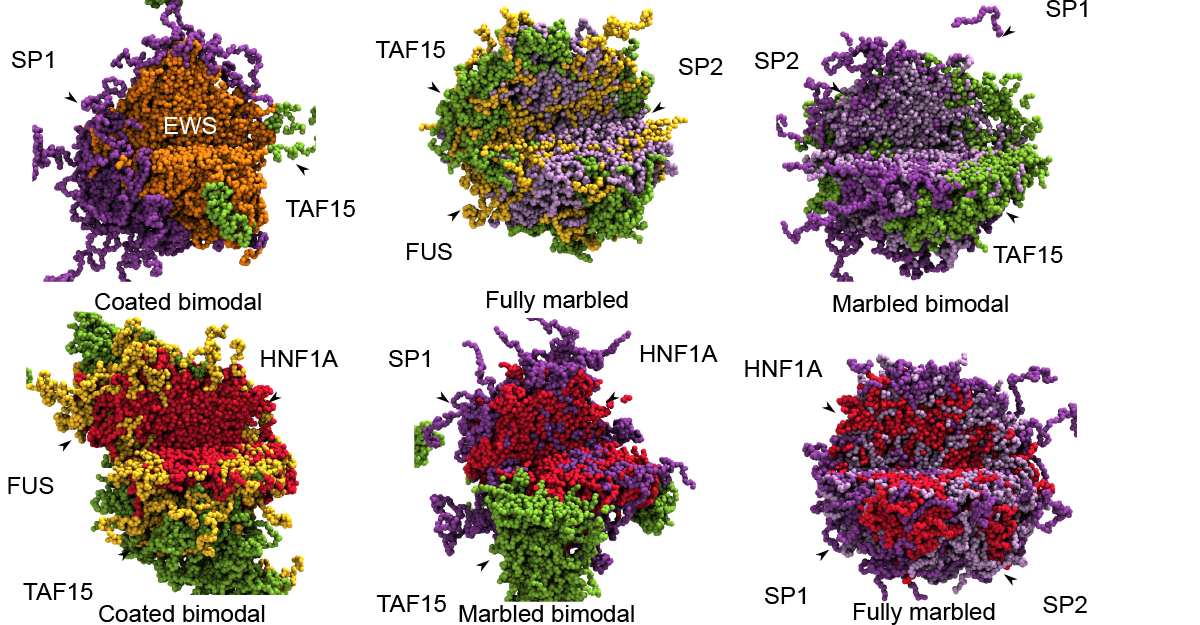Scientists Uncover Molecular Rules Driving Selective Gene Regulation
A new study by the Onck group sheds light on how transcription factors selectively regulate genes, a key process in protein production. They have discovered that phase separation—a phenomenon where molecules form distinct liquid-like droplets—plays a crucial role in this selectivity.

Using advanced molecular dynamics simulations, the team analyzed six transcription factors from three different families and uncovered specific molecular "grammars" that dictate how these proteins condense. Their findings highlight four key molecular motifs and two distinct forces that drive phase separation, revealing a fundamental mechanism behind gene-specific regulation.
"Our results suggest that sequence-dependent molecular grammar governs the selective condensation of transcription factors, offering a new perspective on gene expression control," prof. Patrick Onck states. This insight could have broad implications for understanding diseases linked to gene misregulation, including cancer and neurodegenerative disorders.
The study, titled Selective Phase Separation of Transcription Factors Is Driven by Orthogonal Molecular Grammar, is published in Nature Communications.
Mark D. Driver & Patrick R. Onck, Nature Communications volume 16, Article number: 3087 (2025) https://doi.org/10.1038/s41467-025-58445-7.
More news
-
15 September 2025
Successful visit to the UG by Rector of Institut Teknologi Bandung
